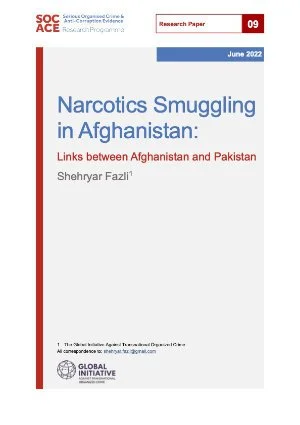By Shehryar Fazli
The Taliban’s 3 April 2022 edict prohibiting poppy cultivation and the use and trade of all types of narcotics across Afghanistan could have grave implications for a collapsing economy. Poppy is the country’s most valuable cash crop, and its labour-intensive cultivation employs several hundred thousand people, pushing up wages and living standards of those directly and indirectly involved. Requiring little water, the poppy’s resilience in adverse agricultural conditions makes it an attractive long-term investment, especially during one of the worst droughts in decades. The new ban would affect farmers in the rural southwest region, where many Taliban leaders are from, as well as influential players across the opium and heroin supply chain. In the absence of significant financial incentives to these constituencies, the risks of a major backlash probably outweigh any benefits of enforcing a poppy ban. Providing such financial incentives would be dependent on significant foreign assistance. Some prominent experts and commentators infer that international legitimacy and funding was the Taliban’s primary motivation in announcing the edict. If so, there are no signs yet that the move will generate the desired response. Afghanistan has been politically and economically isolated since the Taliban’s August 2021 forceful seizure of power. The freezing of around $9 billion in central bank foreign reserves, held mostly in the US, triggered a collapse of the local currency and major liquidity crisis, while aid cut-offs and sanctions triggered hyper-inflation and impeded trade and other business. There are indications that the international community, led by the US, is softening its position to prevent an economic collapse affecting millions of Afghans who face starvation. Without tangible Taliban commitments to basic rights and equality, however, especially of girls and women, deeper international engagement, including on counter-narcotics, is unlikely. How willing and able the Taliban will be to enforce its edict may remain unclear for several months. The ban came amid the poppy harvest in the southwestern provinces of Helmand and Kandahar, bastions of both poppy cultivation and Taliban support. Significant quantities, therefore, may have already been harvested. Transporting them up the supply chain, and to western destinations, will depend on resourceful transnational crime groups. The most important of these are arguably in Pakistan, which shares Afghanistan’s longest border and most of the routes for westward movement of illicit goods, people, and cash from Afghanistan. Criminal networks here traverse the Indian and Iranian borders, and also move their product by sea off the southern Makran coast and Karachi port, to European, African, Asian and Australian markets. These networks, and the geography in which they operate, also require close examination. By better understanding the context and trends, policy-makers will be better able to assess policy options and their implications, especially in Europe, the destination of significant volumes of heroin from Afghanistan
SOC ACE Research Paper No. 9.
Birmingham, UK: University of Birmingham. 2022. 35p.


